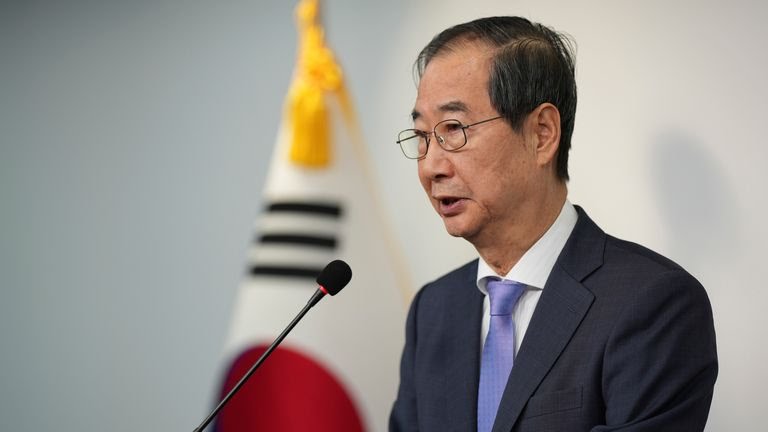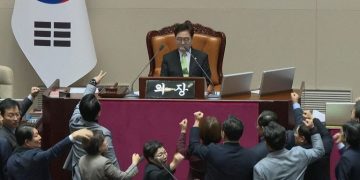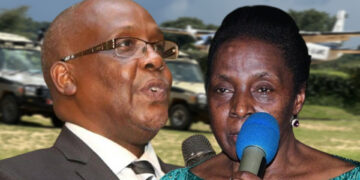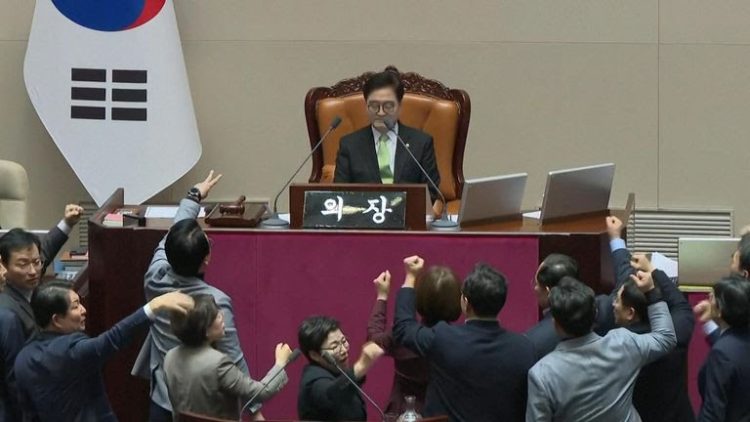By Our Reporter,
SEOUL
South Korea’s parliament has voted overwhelmingly to impeach acting President Han Duck-soo, deepening a constitutional crisis sparked by his predecessor, Yoon Suk Yeol.
The impeachment vote on Friday, passed by 192-0, followed weeks of political turmoil after Mr. Han refused to immediately appoint three Constitutional Court justices approved by the opposition-controlled parliament. The ruling coalition boycotted the vote, accusing the opposition of escalating tensions.

Mr. Han, who also serves as the prime minister, announced he would step aside to prevent further chaos. “I respect the decision of the National Assembly and will await the Constitutional Court’s ruling,” he said.
The crisis began under former President Yoon, who declared a brief period of martial law before being impeached. His case now rests with the Constitutional Court, which requires six of its nine justices to agree to remove an impeached president. With three judicial seats vacant, the court currently has six members, forcing unanimous agreement to decide on Mr. Yoon’s fate.
The opposition accused Mr. Han of obstructing the judiciary by refusing to appoint the three new justices, arguing he aimed to protect Mr. Yoon. Lee Jae-myung, leader of the opposition Democratic Party, said Mr. Han’s actions amounted to “insurrection.”

In Mr. Han’s absence, Finance Minister Choi Sang-mok will assume the role of acting president. The Constitutional Court will now determine whether to uphold or dismiss the impeachment, during which time Mr. Han remains stripped of his presidential powers and duties.
The court has stated it can proceed with deliberations despite the incomplete bench. However, political analysts warn the ongoing crisis could further erode public trust in South Korea’s democratic institutions.
With tensions running high, the nation awaits the Constitutional Court’s rulings on the fates of both Mr. Han and Mr. Yoon, outcomes that could reshape the country’s political landscape.








































